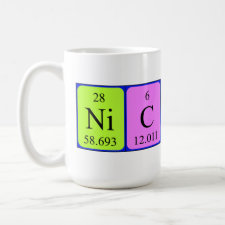
Authors: Khurshid SS, Schmidt CE, Peppas NA
Article Title: Optimization of molecularly imprinted polymers of serotonin for biomaterial applications.
Publication date: 2011
Journal: Journal of Biomaterials Science-Polymer Edition
Volume: 22
Issue: (1-3)
Page numbers: 343-362.
DOI: 10.1163/092050610X486955
Abstract: We prepared molecularly imprinted polymers (MIPs) of serotonin (5-hydroxytryptamine or 5-HT), a neurotransmitter and mood modulator, using a combination of neutral (methacrylamide or acrylamide) and positively charged (methacrylic acid) functional monomers. Water, PBS, acidified methanol and sodium dodecyl sulfate were compared as rinsing solvents for the removal of serotonin from the MIPs. Methacrylamide MIPs rinsed in acidified methanol (92% serotonin removal) produced the highest imprinting factor (3.1) in equilibrium batch rebinding experiments using a combination of 2% water and 98% MeCN as the rebinding solvent. For the first time, these MIPs were assessed for cytocompatibility using mouse mesencephalon neural progenitor cells (NPC) and NIH 3T3 fibroblasts. Although MIP particles decreased NPC viability to <70%, MIP particles did not significantly reduce fibroblast viability when incorporated into a hyaluronic acid biomaterial. MIP microparticles were incorporated into a cross-linked hyaluronic acid biomaterial to present one way in which molecularly imprinted polymers may be used in vivo in future biomaterials or biosensors applications. © 2011 VSP
Template and target information: serotonin, 5-hydroxytryptamine, 5-HT
Author keywords: Biomaterial, cytocompatibility, Hyaluronic acid, methacrylic acid, Molecularly imprinted polymers, Serotonin



Join the Society for Molecular Imprinting

New items RSS feed
Sign-up for e-mail updates:
Choose between receiving an occasional newsletter or more frequent e-mail alerts.
Click here to go to the sign-up page.
Is your name elemental or peptidic? Enter your name and find out by clicking either of the buttons below!
Other products you may like:
 MIPdatabase
MIPdatabase









